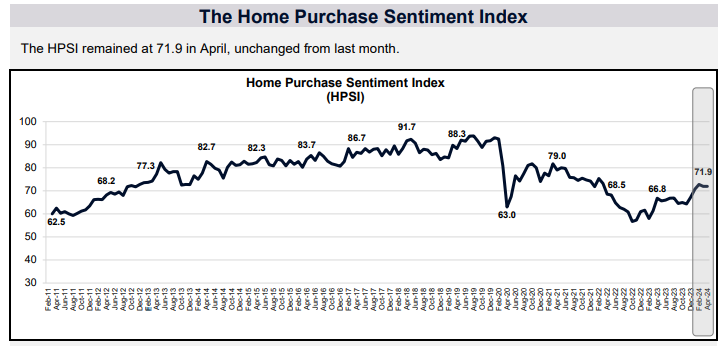Advertisement
The Future of the Mortgage Banking Market: Who Knows What Tomorrow Will Bring

An old adage states that only two things in life are certain: Death and taxes. Well, for the mortgage industry, another truth can be added to that: Regulations, and many more legislative changes on the horizon. Since the Consumer Financial Protection Bureau (CFPB) was established in 2011, the entity has been given the primary responsibility for regulating the financial protection of consumers from student loans to mortgages and everything in between. The result has been more compliance requirements than the industry has ever dealt with in the past. While details of additional regulatory changes and their effect are uncertain, one thing is certain: The future of mortgage banking is poised for significant and dramatic changes.
RESPA changes likely
One area that poses concern for lenders is the proposed change to the fee tolerances related to the Real Estate Settlement Procedures Act (RESPA). In fact, some lenders believe future changes and increasing stringency could drastically affect their ability to remain in business.
The tolerances were originally added to the Real Estate Settlement Procedures Act (RESPA) rule in 2008 when the U.S. Department of Housing & Urban Development (HUD) issued the RESPA Reform Rule, which included substantial changes to the HUD-1 Settlement Statement. The tolerances or limits refer to the actual settlement charges that can vary at closing from the amounts stated on the Good Faith Estimate (GFE). The rule established three categories of settlement charges and each category has different tolerances. At settlement, if the charges exceed the charges listed on the GFE by more than the permitted tolerances, the lender must cure, or resolve, the tolerance violation by reimbursing or crediting the borrower the amount by which the tolerance was exceeded. This has to be done at settlement or within 30 calendar days after settlement.
Fees associated with origination, underwriting, discount points and transfer taxes are held to zero-tolerance. Under the proposal from the CFPB, tolerances will now be called “variations” and the zero-tolerance category will expand to also include services that borrowers cannot shop for, but are required to close a loan. These include services such as appraisals, flood certifications and credit reports. Under the CFPB proposal, lenders are accountable for inaccurate quotes; if a price comes in higher, the lender will have to pay the difference to the borrower. With the current fee structure, lenders already say they are exceeding today’s 10 percent fee tolerance level with some of the services, and prospective changes would make them responsible for paying even more. In addition, if a lender quotes services from one of their affiliated providers and the borrower uses this provider, the lender will now be held to zero tolerance or allowed no variation from what was quoted at the time of application This will directly affect a lender’s bottom lines and is one the reasons lenders are worried about the proposed change from the CFPB.
Interestingly, the residential mortgage process is the only major financial transaction in which historically, estimates have been given upfront instead of actual costs. By providing exact pricing at the beginning within disclosure and closing forms, lenders could manage the “no variation” issue all together. Even items that previously were not held to tolerance, such as prepaid interest, hazard insurance or impounds could be critique for “variations” if a lender is found low-balling those items to create an unfair competitive advantage.
“While details of additional regulatory changes and their effect are uncertain, one thing is certain: The future of mortgage banking is poised for significant and dramatic changes.”
The current workload and proposed regulatory changes make it virtually impossible for lenders to operate using templates, tables or manual call outs to get actual costs upfront for the disclosure process. They must now use technology to deliver accurate pricing upfront as well as throughout the process as changes in circumstances occur. There is no room for guesswork in this environment, and also no sound reason for a lender to pay an exorbitant amount in cures annually when there are systems available today that provide current, accurate, guaranteed rates from service providers anywhere in the country. A technology investment is a drop in the bucket compared to the hundreds of thousands lenders currently dole out each year in fines alone, and as the CFPB adds regulations, technology is no longer nice to have―it is a necessity.
Wholesale channel concerns
The CFPB’s proposed changes would also greatly affect the wholesale channel. The decision by Wells Fargo to join the ranks of Chase, CitiMortgage and other banks in backing out of the market has already shaken things up quite a bit, giving brokers less of a choice regarding what company with which to do business. A proposed new form from the CFPB will create more risk for wholesale lenders, who will be responsible for the fee quotes originators provide to consumers on the disclosures and to ensure the disclosures are delivered within three business days. With this level of accountability, wholesale lenders want to take this option of providing the disclosure forms to consumers away from brokers and handle loan estimates themselves.
Today, brokers are approved to place loans with several wholesale lenders. Often they do not monitor as closely as they should changes in fee information on documents to match each lender’s hard costs, such as underwriting and document preparation. Wholesale lenders accepting brokered loans must run a time consuming quality control process to ensure these fees are properly accounted for and other fees held to tolerance are accurately disclosed. If they find errors upfront, the wholesale lender must reject the file or face the responsibility for tolerance violations to the borrower if they accept the file.
To prevent this added risk, wholesale lenders want their loan costs, based on loan type, hard coded into data solutions that brokers can access to deliver actual closing costs. Whether a wholesale lender continues to allow the broker to send the disclosure package to the borrower themselves or they implement a policy of disclosing for the broker, data solutions ensure accuracy upfront, expedited quality control processes, reduced risk to the wholesale lender and satisfied borrowers who obtain financing and costs that match those originally communicated to them.
Technology: The growing solution
Cost-effective technology is available today to prepare for regulatory and compliance changes, including those proposed by the CFPB. These systems will be critical to give lenders and originators alike the ability to efficiently manage information as well as the control they must have to eliminate human error.
A growing requirement also driven by the CFPB is electronic record keeping. The new regulatory agency is firmly rooted in the importance of leveraging technology; therefore, it promotes the use of systems as much as possible. As an example, auditors will want to view entire pipelines at all stages in real-time as part of their examination.
These change have and will continue to challenge companies that are not completely paperless because they cannot produce the information in the format that auditors want. Nevertheless, data providers, compliance services, electronic disclosures, automated document storage and management will continue to be growth areas within the industry, accelerated by these regulations. Not only will technology facilitate compliance, it will also make record retention much easier for lenders.
The mortgage industry just recently overhauled its disclosure technology in 2009 for GFE and HUD-1 changes, among other ongoing requirements, such as Unfair and Deceptive Acts and Practices. With the ever-changing regulatory climate, it is safe to say the uncertainty is certain. The final implementation for the new combined Loan Estimate and Closing Document will most likely not happen until 2014. The CFPB has become an integral part of our future and will change the way companies conduct business. The proper use of technology to support data and compliance initiatives will help in the adjustment along with a firm understanding that change is inevitable and necessary to run a profitable, compliant business.
Cathy Blaszyk is vice president of lender services for ClosingCorp, a provider of residential real estate closing cost data and technologies for mortgage lenders, real estate professionals and consumers. She may be reached by e-mail at [email protected].
About the author





